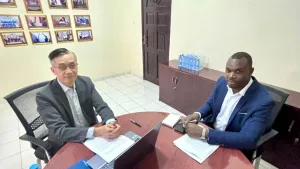I recently had the incredible honor of hearing my colleagues of color speak about racial violence they experienced at the hands of other sociologists. While it is not my place to share the experiences they so bravely communicated to me and other white colleagues, I do feel it is my duty to reflect on the role of exclusionary, academic culture in perpetuating the violence and racism they have experienced.
I am an applied sociologist, and I have been advocating for more inclusion of applied sociology in our professional organizations since before I even graduated with my PhD and officially joined the “ranks” of my colleagues. When I was a graduate student, I made the connection between the lack of applied focus in sociology graduate programs, and graduate student mental health. Now, I make the bold claim that our lack of applied focus in our professional organizations is one of many practices that continuously reproduces the white supremacy within them.
Stay With Me
Now, before you decide not to read this piece because that connection seems far-reaching, give me one more paragraph to convince you.
It is not by coincidence that most academic departments, including sociology departments, are majority white. It is by design; a design that operates through institutionalized racism (and sexism, and classism); a design that depends on a force much more powerful than any one individual. That force leads to inequitable outcomes in faculty hires, leaving graduate students of color without faculty mentors who have similar lived experiences as them. This lack of mentorship for sociologists of color further perpetuates the pervasive whiteness of academia. So, what do newly minted PhDs who don’t fare well on the job market do? They enter “industry,” aka the applied workforce.
It doesn’t matter if they were forced out of academia by racist hiring practices, or if they seemingly chose to leave the toxic racist culture for a more supportive space. The force driving both pathways to applied sociology rely on the same institutionalized racism that has been operating for centuries, and continues to operate today.
The Marginalization of Application
In 2006, the late sociologist Jay Weinstein published an article titled “The Marginalization of Application in U.S. Sociology.” In this article, Weinstein details the historical connections between sexism, racism, and the devaluing of applied work within U.S. sociology. He argues that because applied work became so closely associated with sociologists already holding marginalized positions, namely W.E.B. Du Bois—a Black man—and Jane Addams—a woman—the discipline automatically devalued applied sociology more broadly through its association with such marginalized scholars.
That legacy of marginalization still permeates every professional sociology space to this day—and I should know, having been that applied sociologist in so many of those spaces.
But, how does that marginalization show up today?
It looks like asking folks to introduce themselves by name and university affiliation. It looks like confusion when the answer to “where are you coming from?” is Arizona, instead of the University of Arizona. It looks like expecting unpaid labor through the guise of service because academic tenure evaluations expect faculty to provide “service to the discipline.” It looks like a space designed by and for academic sociologists.
Supporting our marginalized colleagues starts with supporting our applied colleagues. It starts with making space for the activists in our discipline—the people who are living out in the real world, making the changes that many academics are simply writing about.
I would never claim that my marginalization as an applied sociologist compares to the marginalization my colleagues of color face in our academic institutions and beyond. They are absolutely different and culminate in distinct consequences—including, sometimes, death by racism. My life as an applied sociologist is not threatened by these marginalizing systems. But sometimes I find the most helpful way to move forward is to band together with people who share your anger at inequitable systems. And just because I don’t experience racism from my fellow sociologists, does not mean I’m not infuriated by it.
Imagining a Better Future for Sociology
I have an inkling that if we not only tolerated, but accepted with open arms, our applied and activist colleagues into our organizations, we might inadvertently be making more space for non-white sociologists. In saying that, I do not want to say we shouldn’t also intentionally create more space for our colleagues of color. We can intentionally do so, while also making structural changes that would—to use an introductory sociology concept—provide the latent function of supporting radical inclusion.
We can’t have radical inclusion if we are only accepting Black academic sociologists to represent the experience of Black sociologists. We can’t have radical inclusion if only the academic work, and not the activist work, of our Latinx colleagues is valued in our professional organizations. To create radical inclusion, we must look at the elitist, racist, sexist, and outright toxic academic culture that has infiltrated every aspect of academic sociology, despite our collective research on inequalities.
While it might not be the only way, one surefire way to do that is to expand our professional organizations to not just allow applied sociologists to participate in them, but to value their participation at the same level we value the participation of academic sociologists. And in case it needs to be said because it’s not inferred, a single award for activism, social action, or sociological practice is not enough. The structure of our organizations must change in drastic ways if we really want to be a radically inclusive discipline.
I would like to end this reflective piece with a few important questions that I hope any leaders in our professional organizations will take the time to contemplate:
- How do our submission systems for participation in meetings exclude applied or practicing sociologists?
- How do our reimbursement structures (e.g., cost share, travel grants) benefit academic sociologist, while excluding applied sociologists?
- How do our micro-level interactions at meetings potentially alienate our non-university affiliated activist and applied members?
- Do we value the participation of applied sociologists in our organization? If so, how are we making sure that is obvious?
- How can we support applied and activist sociologists in our organizations beyond symbolic gestures like awards and the occasional symposium or panel?
Resources on Applied Sociology:
- Examples of Applied Sociology in Real Life
- Exploring Applied Sociology Jobs and Career Paths
- Exploring the Meaning, Scope, and Importance of Applied Sociology
- What is Applied Sociology? History, Definition, and Jobs
- Profiles in Applied & Clinical Sociology
- Association for Applied & Clinical Sociology
- Applied Sociology: A Treatise on the Conscious Improvement of Society by Society by Lester F. Ward
- Applying Sociology: Making a Better World by W.E.B Du Bois & R. Dean Wright







